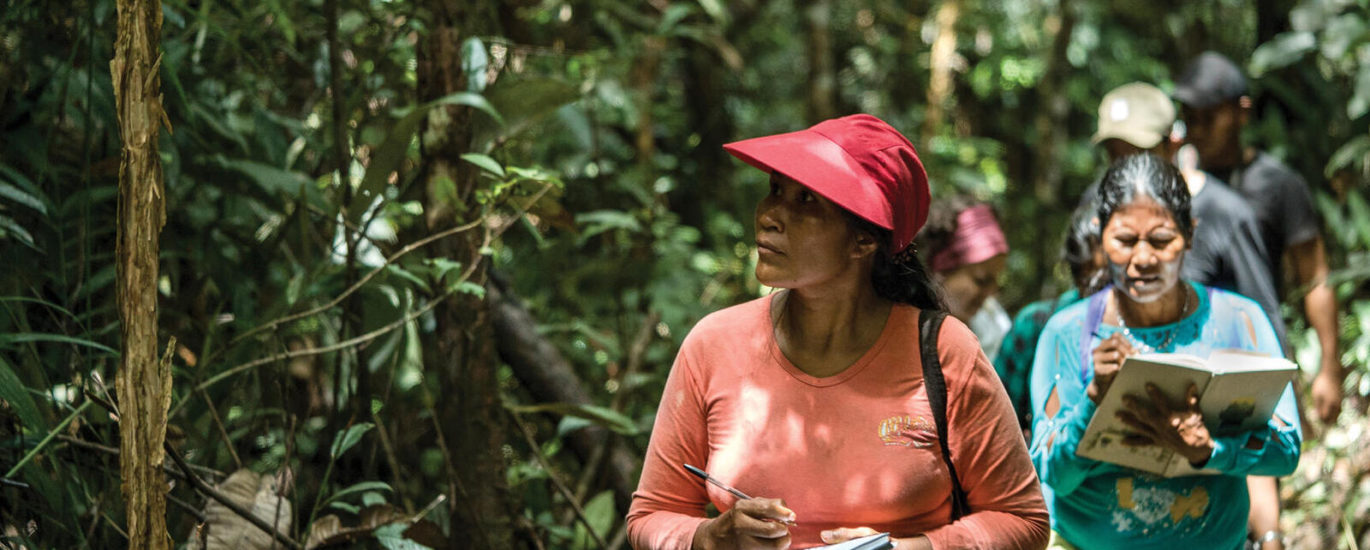Indigenous Knowledge, also known as traditional ecological knowledge (TEK), refers to the wisdom and practices passed down through generations within Indigenous communities. This knowledge is based on centuries of observation and interaction with the natural environment, making it a valuable resource in the realm of forest conservation. Indigenous peoples have a deep understanding of their local ecosystems, including the plants, animals, and landscapes that make up their traditional territories. This knowledge is often not only accurate but also holistic, considering the interconnectedness of all living beings.
One of the key impacts of incorporating Indigenous Knowledge into forest conservation efforts is the promotion of sustainable practices. Indigenous communities have long relied on the land for their survival, understanding the importance of maintaining a healthy balance between human activities and the natural world. By recognizing and respecting Indigenous Knowledge, conservationists can learn valuable lessons on how to manage forests in a way that ensures the long-term health and vitality of the ecosystem. In addition, implementing methods to stop deforestation, such as enforcing stricter regulations on logging and incentivizing reforestation efforts, can complement the insights gained from Indigenous Knowledge. In the upcoming section, we will discuss some key takeaways on how Indigenous Knowledge can serve as a critical ally in the fight to preserve our forests for future generations.
What you should know
1. Indigenous knowledge systems contribute valuable insights to forest conservation efforts, offering a holistic perspective that incorporates cultural, spiritual, and ecological elements.
2. Collaborative partnerships between indigenous communities and conservation organizations result in more effective and sustainable forest management strategies that respect traditional practices and beliefs.
3. Recognizing and incorporating indigenous knowledge into conservation policies and practices can lead to greater biodiversity protection and ecosystem resilience in forests around the world.
4. Respecting indigenous rights and sovereignty is crucial for successful implementation of forest conservation initiatives that leverage traditional knowledge and practices.
5. Empowering indigenous communities to actively participate in decision-making processes related to forest conservation not only strengthens conservation outcomes but also promotes social justice and community well-being.
What role does Indigenous Knowledge play in Forest Conservation?
**Indigenous Knowledge plays a crucial role in forest conservation by offering valuable insights and practices that have been passed down through generations. Indigenous communities have a deep understanding of their local ecosystems and have developed sustainable ways of managing and preserving forests. They possess traditional knowledge about the medicinal properties of plants, the behavior of wildlife, and the importance of maintaining a balance between human activities and nature. By incorporating Indigenous Knowledge into forest conservation efforts, we can benefit from their expertise and ensure the long-term health of our forests.**
The Importance of Preserving Indigenous Knowledge
Indigenous Knowledge is not only valuable for its practical applications in forest conservation but also for its cultural significance. Many Indigenous communities have a spiritual connection to the land and view themselves as stewards of the environment. By preserving Indigenous Knowledge, we are not only protecting valuable information about sustainable practices but also honoring the traditions and beliefs of these communities. Additionally, Indigenous Knowledge can provide alternative perspectives on conservation issues and offer innovative solutions that may not have been considered through Western scientific methods alone.
Challenges and Opportunities in Integrating Indigenous Knowledge into Forest Conservation
While there is a growing recognition of the importance of Indigenous Knowledge in forest conservation, there are also challenges in integrating this knowledge into mainstream practices. One of the main obstacles is the lack of respect for Indigenous rights and autonomy, which can hinder collaboration and knowledge sharing. Additionally, there may be language barriers and differences in worldviews between Indigenous communities and conservation organizations. However, there are also opportunities for partnerships and co-management arrangements that can help bridge these gaps and ensure that Indigenous Knowledge is valued and incorporated into conservation strategies. By fostering mutual respect and understanding, we can harness the full potential of Indigenous Knowledge in protecting our forests for future generations.
1. What is the significance of Indigenous Knowledge in forest conservation?
Indigenous Knowledge plays a crucial role in forest conservation as it is based on centuries of traditional practices and wisdom passed down through generations. Indigenous communities have a deep understanding of their local ecosystems and the interconnectedness of all living beings within them. This knowledge is often more holistic and sustainable than modern scientific approaches, as it takes into account not only the environmental impact but also the social and cultural implications of conservation efforts.
2. How can Indigenous Knowledge be integrated into mainstream forest conservation practices?
One way to integrate Indigenous Knowledge into mainstream forest conservation practices is through collaboration and partnership with indigenous communities. By involving indigenous peoples in decision-making processes and incorporating their traditional practices into conservation strategies, we can benefit from their unique perspectives and expertise. This can help ensure that conservation efforts are more effective, culturally sensitive, and sustainable in the long term.
3. Are there any challenges in incorporating Indigenous Knowledge into forest conservation?
One of the main challenges in incorporating Indigenous Knowledge into forest conservation is the lack of recognition and respect for indigenous peoples’ rights and traditional practices. Many conservation initiatives have historically marginalized or excluded indigenous communities, leading to conflicts and resistance. It is essential to address power imbalances, build trust, and ensure that indigenous peoples have a voice in decision-making processes to overcome these challenges and create more inclusive and successful conservation efforts.
4. How can Indigenous Knowledge contribute to biodiversity conservation?
Indigenous Knowledge can contribute to biodiversity conservation by providing valuable insights into the relationships between different species, habitats, and ecosystems. Indigenous communities often have detailed knowledge of local flora and fauna, including their behaviors, habitats, and uses. By incorporating this knowledge into conservation strategies, we can better understand and protect biodiversity, identify key species and habitats for conservation, and promote sustainable resource management practices that benefit both people and the environment.
5. What are some examples of successful collaborations between indigenous communities and conservation organizations?
There are many examples of successful collaborations between indigenous communities and conservation organizations around the world. For instance, the Guna people in Panama have partnered with conservation groups to establish community-managed marine protected areas that have helped restore fish populations and improve local livelihoods. In Australia, indigenous rangers are working with government agencies to manage fire regimes and protect biodiversity in national parks. These partnerships demonstrate the value of integrating Indigenous Knowledge into conservation efforts and the positive outcomes that can result from respectful and collaborative relationships.
6. How can mainstream conservation organizations support and amplify Indigenous Knowledge in their work?
Mainstream conservation organizations can support and amplify Indigenous Knowledge in their work by actively engaging with indigenous communities, respecting their rights and traditional practices, and incorporating their perspectives into conservation planning and decision-making processes. This can involve providing funding and resources for indigenous-led conservation initiatives, promoting indigenous leadership and participation in conservation projects, and advocating for policies that recognize and protect indigenous peoples’ rights and knowledge. By working in partnership with indigenous communities, mainstream conservation organizations can enhance the effectiveness and sustainability of their conservation efforts and contribute to more equitable and inclusive conservation outcomes.
7. How does Indigenous Knowledge contribute to sustainable forest management?
Indigenous Knowledge contributes to sustainable forest management by offering insights into traditional land use practices, resource management techniques, and conservation strategies that have been proven effective over generations. Indigenous communities have developed sophisticated systems for managing forests, including rotational farming, agroforestry, and community-based conservation initiatives that promote biodiversity, soil health, and water quality. By incorporating these traditional practices into modern forest management approaches, we can improve the resilience and sustainability of forests, enhance ecosystem services, and support the well-being of both people and the environment.
8. What are the key principles of Indigenous Knowledge that can inform forest conservation efforts?
Some key principles of Indigenous Knowledge that can inform forest conservation efforts include respect for nature, reciprocity, interconnectedness, and sustainability. Indigenous communities view the natural world as a living entity with its own rights and agency, deserving of respect and care. They recognize the importance of maintaining balance and harmony in ecosystems, fostering relationships of reciprocity and mutual support between humans and nature. By embracing these principles and incorporating them into conservation practices, we can create more ethical, effective, and resilient approaches to forest conservation that benefit both people and the planet.
9. How can Indigenous Knowledge help address climate change and its impacts on forests?
Indigenous Knowledge can help address climate change and its impacts on forests by offering insights into traditional adaptation strategies, resilience-building techniques, and mitigation measures that have been developed in response to changing environmental conditions. Indigenous communities have long experience in coping with climate variability, extreme weather events, and other challenges that threaten forest ecosystems. By learning from their knowledge and practices, we can develop more effective climate change adaptation and mitigation strategies, protect forests from the impacts of climate change, and promote the resilience of both ecosystems and communities in the face of environmental uncertainty.
10. How can individuals support and learn from Indigenous Knowledge in their own efforts to conserve forests?
Individuals can support and learn from Indigenous Knowledge in their efforts to conserve forests by engaging with indigenous communities, listening to their stories and perspectives, and respecting their rights and traditional practices. This can involve participating in indigenous-led conservation initiatives, supporting indigenous-owned businesses and organizations, and advocating for policies that recognize and protect indigenous peoples’ rights and knowledge. By building relationships with indigenous communities, learning from their wisdom, and incorporating their values into our own conservation practices, we can contribute to more inclusive, equitable, and effective efforts to conserve forests and protect the biodiversity and cultural heritage they sustain.







